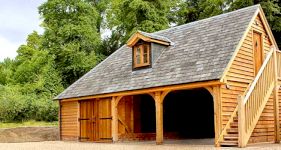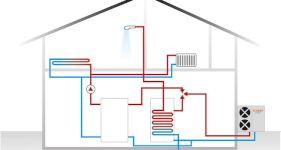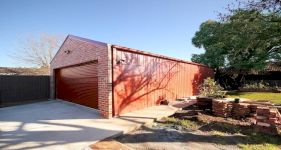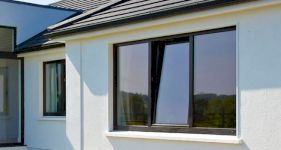Repointing Cost
- The average cost of repointing a house is £3,000.
- It takes around 1 week for a professional to repoint a property.
- A breakdown of how much repointing costs in 2025.
- How long repointing a house takes, as well as an overview of what the job entails.
- How to find and hire a local builder in the UK.
Trying to find out the cost of repointing a house?
To get your property repointed, you can expect to pay between £600 and £7,250 depending on the size of the area
So, how can this complete cost guide help you?
In this guide, we look at repointing brickwork prices for different house sizes and different conditions of pointing brickwork, as well as labour fees and the repointing cost per m².
Looking for a repointing quote?
Submit a few basic details and find repointing specialists near you. They'll provide you with quick, easy, free, and no obligation quotes to complete this job.
Need more information first?
Continue reading below to discover everything you need to know about repointing prices in 2025!

£3,000
Table of Contents
- How Much Does Repointing Cost?
- Supply Costs Only
- Additional Repointing Costs
- Labour Costs and Timescales
- What Is Repointing?
- What Impacts How Much Repointing Costs?
- What's Involved in Repointing Brick Walls?
- Can I Repoint a Brick Wall Myself?
- What Is the Best Mortar for Repointing Brick Walls?
- Types of Mortar Joints
- Do My Walls Need Repointing?
- What Are the Benefits of Repointing?
- Cost to Remove Mortar from Brick
- Hiring Contractors to Repoint Brick Walls Checklist
- FAQs
- Sources
How Much Does Repointing Cost?
Why is repointing important?
Bricks are sturdy materials that will generally outlive you. But the mortar that holds them together needs regular attention to keep rain and damp from penetrating the walls of your home.
To rejuvenate the mortar, you will need to have your brick walls repointed.
How much will repointing a single wall cost?
Prices can range from £600 to £1,500 for a single 30m² brick wall to £1,000 up to £2,500 for a single 50m² brick wall.
What if you need a whole exterior repointing?
If you need the entire exterior of your property repointed, then this normally costs:
- £1,300 to £2,350 for a terraced house.
- £1,900 to £4,750 for a semi-detached home.
- £2,900 to £7,250 for a detached property.

What do these cost depend on?
These costs will, of course, vary depending on how damaged the mortar is and how much of it needs to be repaired. If you have any additional damage, such as damp or broken bricks, the job will take much longer and will also be a lot more expensive.
How much does it cost to hire a specialist to repoint a 5m² to 6m² area of a wall? What about the labour and supply costs individually? Alternatively, is this something that I can do myself? If so, what should I know and roughly, what are the steps involved?
This is something you could do yoursel, but can be very dusty if a grinder is required. It needs raking out to a depth of 15mm to 20mm before wetting (to remove dust and aid adhesion) before repointing."
Repointing Prices
Here is a price breakdown of various sized brick wall repointing jobs:
| Job Description | Avg. Cost |
|---|---|
| Repointing 30m² brick wall | £600 – £1,500 |
| Repointing 50m² brick wall | £1,000 – £2,500 |
| Repointing 65m² terraced home | £1,300 – £3,250 |
| Repointing 95m² semi-detached home | £1,900 – £4,750 |
| Repointing 145m² detached home | £2,900 – £7,250 |
Repointing Cost Calculator
Using the Repointing Cost Calculator
Unsure exactly what the length and height of the area you want to estimate the cost of repointing for is?
Below are typical measurements for different types of properties in the UK:
| Type of Property | Total Height | Total Length |
|---|---|---|
| Terrace | 5 metres | 13 metres |
| Semi-Detached | 5 metres | 19 metres |
| Detached | 5 metres | 29 metres |
| Bungalow | 3 metres | 24 metres |
Supply Costs Only
Planning to repoint a brick wall yourself?
Then here is a breakdown of the different supply costs for lime, sand and white cement, which all form part of a high-quality mortar mix:
| Supplies | Cost per KG |
|---|---|
| Lime | £0.40 – £0.50 |
| Sand | £0.08 – £0.10 |
| White cement | £0.40 – £0.50 |
Additional Repointing Costs
There are several others you need to consider when calculating the cost of brick wall repointing, including:
- House Rendering Cost — UK Average: £5,000
- Cost to Paint a House — UK Average: £850
- House Cladding Cost — UK Average: £3,800
- Scaffolding Hire Cost — UK Average: Varies Significantly
Labour Costs and Timescales
Finding a good bricklayer can be difficult, many are booked up weeks if not months in advance, so don't leave things till the last minute.
The average cost of repointing a house can vary depending on the style of brick and the type of method used. When calculating the price, you need to think about:
- Timescale
- Materials
- Labour
How can you calculate labour fees?
Most tradespeople will work on a meter squared basis, and they will charge anything from £20 to £50 metre squared. If they need to get some scaffolding, it will also cost a little more.
How long can repointing take?
The general time frame for repointing is around one day for small repointing jobs, while the price for repointing brickwork for an entire property could take up to six days to complete.
What Is Repointing?
The mortar in between your bricks is called pointing, and this will need to be repaired or renewed at some point.
How can you check your pointing?
The best way to check your pointing is to simply look at it and check it's all even and pretty flush with the brickwork.
Then try running your finger along it and see if any mortar crumbles and comes away. You need to check multiple areas on all the walls, as mortar quality can be patchy, and it may look great on the back wall yet be crumbling on the front.

If you can see any gaps between the mortar and the bricks, or if any mortar comes away with your fingers, then this means you will likely need to have some repairs done on your brickwork.
Why does mortar damage occur?
Mortar damage can sometimes be localised in areas where there may have been a leak, but often the mortar will simply be timeworn and crumbling with age or have been poorly laid in the first place.
The state of the mortar in the walls will not necessarily be the same over the entire area. Typically the corners facing the prevailing winds suffer first, then areas below drips from windows or gutters. The mortar around window and door surrounds is often weak due to the vibration over the years.
So you may not need to have the entire wall repointed.
However, if you only have part of the wall repointed, the new mortar colour will stick out like a sore thumb unless you are fortunate.
What can you do?
The best plan in most cases is to repoint the entire wall, raking out some sound mortar that doesn't really need pointing and repoint that as well, so the whole wall will end up the same colour.
How much does repointing cost for a chimney stack (about 6ft tall) on a bungalow?
What Impacts How Much Repointing Costs?
In order to calculate the cost of repointing brick walls, you need to consider the following factors.
Location of Property
Where you live will contribute to the final cost evaluation, as bricklayers in different areas charge various prices. For instance, the average daily rate for a bricklayer based in London is around £220, while a tradesperson in the north-west may charge just £180 for a full day's work.
Ease of Access
If you need your entire house repointing or need repairs to the bricks near the roof, then some tradesperson charge more as the job will be more difficult and will also take longer. They may also charge for scaffold installation, which can cost up to £900.
Size of Wall
Bricklayers tend to charge £20 to £50 which is the average repointing price per m², so the size of the wall will determine the final cost. For instance, a 30m² wall tends to cost £600 to £1,500 for repointing, while a 50m² brick wall ranges from £1,000 to £2,500.

Number of Walls
When figuring out a final quote, bricklayers will assess the condition of your walls and determine how many walls need repointing. You may only get a low quote if just one wall needs fixing but if it is your entire house you could pay anywhere from £1,300 to £7,250 depending on the size of your home.
Type of Mortar Joint
Another cost affecting factor is the type of mortar joint you want. For example, a concave mortar joint tends to be harder to create as it requires a curved steel jointing tool, although once it is in place, it is incredibly durable to weather and wear.
This means it will take a lot longer in comparison to a weathered mortar finish, which usually fits into a horizontal joint and blocks out water.
What's Involved in Repointing Brick Walls?
To help you understand the process of hiring someone to repoint your brick walls, here is a step. By step breakdown:
- Before the repointing can begin, water will usually be sprayed onto the area that needs repairing, as this will prevent the mortar from drying too quickly.
- Once the wall has been dampened, the bricklayer will then remove the old mortar, followed by clearing away any dust or debris from the surrounding areas.
- After all the old mortar has been removed, they will then start to lay the new mix and fill in the empty gaps between the bricks. They usually use a mixture of lime, cement, and sand.
- The mortar will then be left to dry until it can be touched without leaving fingerprint marks. At this stage, they will then brush or wipe off any excess mortar to make it look neat and smooth.
Can I Repoint a Brick Wall Myself?
Repointing is a job that you can do yourself if you have the skills, but it is best to get a professional bricklayer to at least check it first and give advice.
You will likely need scaffolding to do the upper floors of your house and professionals will have all the right tools and be able to do a more thorough job than you, leaving a nice, clean finish.
Like many jobs, pointing can look deceptively simple when you watch a professional doing it.
But when you first try it for yourself, it soon becomes apparent that without the special knack required you can make a real mess of things. If you decide to try it yourself, make sure you get some practice first on a wall that does not have to be pretty, such as the back of a garage.

If you have a low budget in mind, you should take a look at an online repointing cost calculator which will help you determine the final price, while also helping save on labour costs, then you should consider doing it yourself. However, when doing, you should be wary of disturbing very old bricks while removing mortar.
This includes Victorian yellow stocks or red rubbers, as they are really soft compared to a more modern brick, so they are more susceptible to chips and cracks. With old bricks, you should stick to the areas which need doing while removing the crumbling mortar and leaving everything else intact.
It won't look great at first, but after it has weathered for a while, it won't stick out too much.
What type of trowel do I need for repointing my exterior walls?
What Is the Best Mortar for Repointing Brick Walls?
There are various types of mortar, including types M, S, N and O. However, not all of them are suitable for repointing brick walls.
Professionals tend to use Type N mortar, which is a medium-strength mix which is made up of one part lime, one part cement and six parts sand. This works well with brick and stone as it is flexible, prevents cracking and is highly resistant to high heat and low temperatures.
Another popular mortar mix is Type S, which is slightly stronger than Type N and can be used for outdoor patios and below-grade exterior walls. This is made up of two parts cement, nine parts sand and one part hydrated lime.
Types of Mortar Joints
One of the most important things you need to consider is the type of mortar joint you want, as there are several types which offer various aesthetics and functions, including:
Bucket Handle
The Bucket Handle finish is probably the most popular today, introduced in the 1930s; this is where the mortar is rubbed up with a piece of tubing or a special tool shaped like a galvanised bucket handle.

Weatherstruck
Weatherstruck is a type of finish first used by the Victorians where the newly applied mortar is angled downwards to just slightly overhang the brick below to shed the water away from the joint.
Recessed
A recessed joint is an extra raked joint which is applied 2 to 5mm deeper than the wall's surface. This is fitted horizontally and is normally used in conjunction with vertical head joints.

Raked
Raked Joints is where the mortar is simply raked out to leave a flat vertical finish recessed slightly from the brick face. It is quick and easy but not popular nowadays as it allows any water to sit in the recess, which over time will cause problems.
Do My Walls Need Repointing?
If you notice any loose bricks or empty gaps between the bricks, then this is a clear sign that your walls need to be repointed. You will also need to consider repointing if the mortar has receded by 5 to 10mm.

What Are the Benefits of Repointing?
There are various advantages to having your brick walls repointed, which include the following:
Structural Integrity
Having your walls repointed will make your property walls much more robust and also ensure your home's foundations last longer and are protected against wear and tear.
Weatherproofing
One of the biggest benefits of repointing is that adding new and improved mortar will protect your home during adverse weather conditions including high heat, cold temperatures and damp.
Appearance
Old mortar tends to look unsightly, which therefore makes the exterior of your home look untidy. By repointing your brick walls, you can improve the look of your property while also enhancing kerb appeal.
Property Value
As mentioned, repointing can improve kerb appeal by updating a property's exterior, which will, therefore, more look more attractive to prospective buyers, increasing demand and property value.
Low-Maintenance
Having your walls repointed will actually save you a lot of money on maintenance and repairs, as you will not need to have your walls repointed for another 50 to 60 years. Brickwork repointing also prevents damp and leaks, which again will prevent from spending money to repair leaks or damp patches.
Cost to Remove Mortar from Brick
Before repointing your brick walls, you will need to have your old mortar removed first. For a job like this, you should expect to pay around £25 to £45 per hour for a professional to remove your outdated mortar.
A cheap option would be to remove it yourself with a hammer chisel, which will save you money but will also be a lot more time-consuming.

If you do not have the old mortar removed, then more than likely, the new mortar will fail, and you will have wasted time and money purchasing, mixing and applying mortar as it will not adhere properly.
Hiring Contractors to Repoint Brick Walls Checklist
Before hiring a tradesperson to repoint your brick walls, take a look at the following checklist, which sets out everything you should look for when employing a bricklayer.
- Enquire about previous jobs and if possible ask for proof in the form of images or reviews
- Check their qualifications which may include a Level 2 Technical Certificate in Bricklaying or a Level 3 Advanced Technical Diploma in Bricklaying
- Try to choose a tradesman who is qualified under the Construction Skills Certification Scheme (CSCS)
- Make sure they have public and employer's liability insurance to protect you and them should an incident occur
FAQs
What is the best way to clean bricks after repointing?
If you notice any residue or dust on your bricks, then you should take a medium soft bristle brush on the face of the bricks and perform a sweeping motion to get rid of it.
If you have any dry mortar stuck on your bricks, then this can be much harder to remove, and you may require a hose and drilling equipment to get rid of the tough material.
You need to make sure that the wall is wet before any drilling can occur, as this will prevent damage to the bricks. You can also use a chisel to get rid of any mortar build-ups and break them down into small pieces to avoid difficult breakages.
Do I need planning permission or building regulations approval before repointing?
Why does my wall need repointing?
What's the right mortar to use for repointing a brick wall?
How often should I have my brick or stone repointed?
All mortar joints will deteriorate over time but should last for many years, so this should be a once in a lifetime job!
Sources
https://www.planningportal.co.uk/permission/common-projects/fences-gates-and-garden-walls/planning-permission
https://www.championbrickwork.co.uk/accreditations/
https://theconstructor.org/building/brick-mortar-joint-types/24636/
https://brickarchitecture.com/about-brick/why-brick/types-of-joints
https://www.sunrisetools.co.uk/blog/post/8-how-to-pointing-repointing-brickwork









